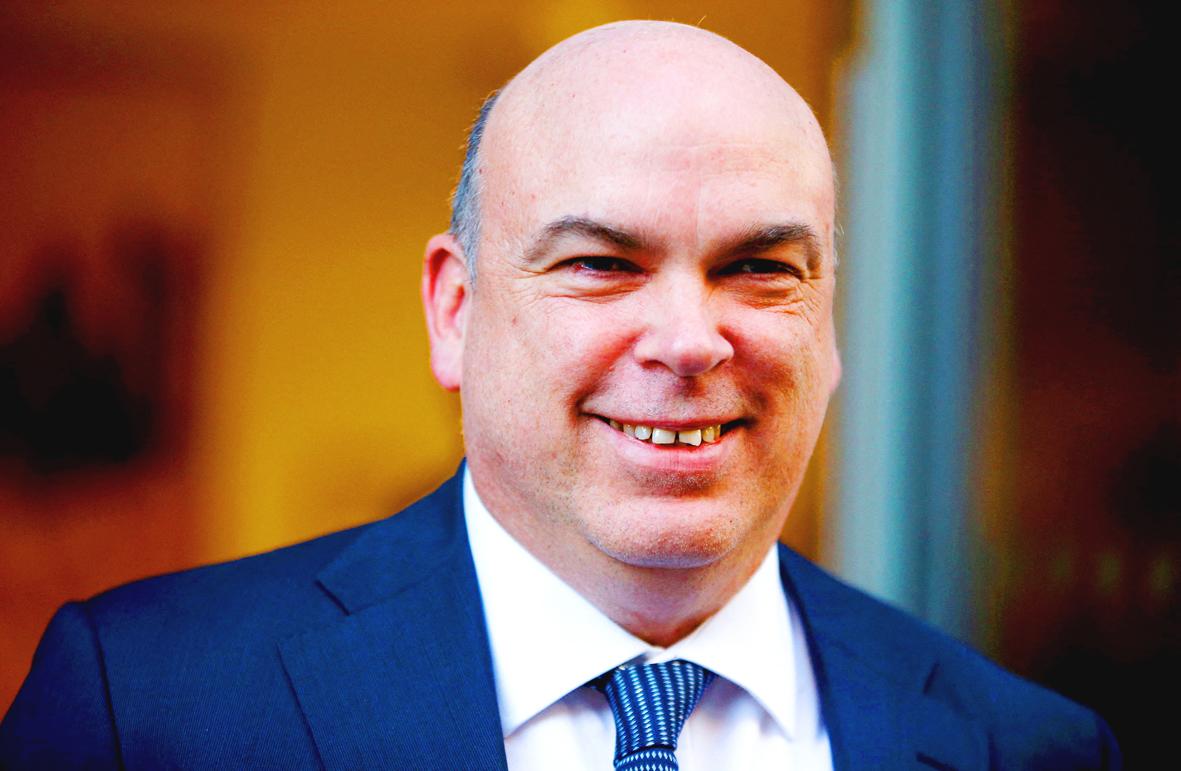US tech giant Hewlett Packard Co on Friday won a multibillion dollar fraud case over its 2011 purchase of British software company Autonomy Corp PLC.
One year after the deal, HP accused Autonomy of falsifying its accounts, claiming it had inflated its value and caused huge losses for the US company when the correct accounting emerged after the US$11.1 billion sale.
HP sued two executives — Mike Lynch, Autonomy’s British founder, and former chief financial officer Sushovan Hussain — for about US$5 billion dollars.

Photo: Reuters
A US court in 2018 convicted Hussain of fraud relating to the sale and jailed him for five years.
In a summary of his decision in what is believed to be Britain’s biggest-ever civil fraud trial, judge Robert Hildyard said HP and other claimants had “substantially won.”
Hildyard said the damages to be paid are to be determined at a later date.
HP claimed that the two men had “artificially inflated Autonomy’s reported revenues, revenue growth and gross margins ... over a sustained period of time.”
The company announced a US$8.8 billion write-down of the firm’s value just more than a year after the sale.
British Home Secretary Priti Patel on Friday signed an order for the extradition of Lynch to the US, where he faces separate criminal proceedings over the sale, Patel’s office said in a statement.
Lynch has the right to apply to the British High Court to appeal the extradition order, it added.
Lynch has denied any wrongdoing.
A lawyer for the businessman, Kelwin Nicholls, said the court’s ruling was “disappointing,” adding that Lynch “intends to appeal.”
Another of Lynch’s lawyers, Chris Morvillo, said his client “firmly denies the charges brought against him in the US and will continue to fight to establish his innocence.”
Lynch is “a British citizen who ran a British company in Britain, subject to British laws and rules, and that is where the matter should be resolved,” Morvillo said.
Lynch, from Suffolk in eastern England, said that HP was making him “a scapegoat for their failures.”
HP lawyer Laurence Rabinowitz told the court that Autonomy used “a variety” of fraudulent devices to boost or invent revenue.

Zhang Yazhou was sitting in the passenger seat of her Tesla Model 3 when she said she heard her father’s panicked voice: The brakes do not work. Approaching a red light, her father swerved around two cars before plowing into a sport utility vehicle and a sedan, and crashing into a large concrete barrier. Stunned, Zhang gazed at the deflating airbag in front of her. She could never have imagined what was to come: Tesla Inc sued her for defamation for complaining publicly about the vehicles brakes — and won. A Chinese court ordered Zhang to pay more than US$23,000 in

Taiwan Semiconductor Manufacturing Co (TSMC, 台積電) yesterday said that its investment plan in Arizona is going according to schedule, following a local media report claiming that the company is planning to break ground on its third wafer fab in the US in June. In a statement, TSMC said it does not comment on market speculation, but that its investments in Arizona are proceeding well. TSMC is investing more than US$65 billion in Arizona to build three advanced wafer fabs. The first one has started production using the 4-nanometer (nm) process, while the second one would start mass production using the

A TAIWAN DEAL: TSMC is in early talks to fully operate Intel’s US semiconductor factories in a deal first raised by Trump officials, but Intel’s interest is uncertain Broadcom Inc has had informal talks with its advisers about making a bid for Intel Corp’s chip-design and marketing business, the Wall Street Journal reported, citing people familiar with the matter. Nothing has been submitted to Intel and Broadcom could decide not to pursue a deal, according to the Journal. Bloomberg News earlier reported that Taiwan Semiconductor Manufacturing Co (TSMC, 台積電) is in early talks for a controlling stake in Intel’s factories at the request of officials at US President Donald Trump’s administration, as the president looks to boost US manufacturing and maintain the country’s leadership in critical technologies. Trump officials raised the

From George Clooney to LeBron James, celebrities in the US have cashed in on tequila’s soaring popularity, but in Mexico, producers of the agave plant used to make the country’s most famous liquor are nursing a nasty hangover. Instead of bringing a long period of prosperity for farmers of the spiky succulent, the tequila boom has created a supply glut that sent agave prices slumping. Mexican tequila exports surged from 224 million liters in 2018 to a record 402 million last year, according to the Tequila Regulatory Council, which oversees qualification for the internationally recognized denomination of origin label. The US, Germany, Spain,